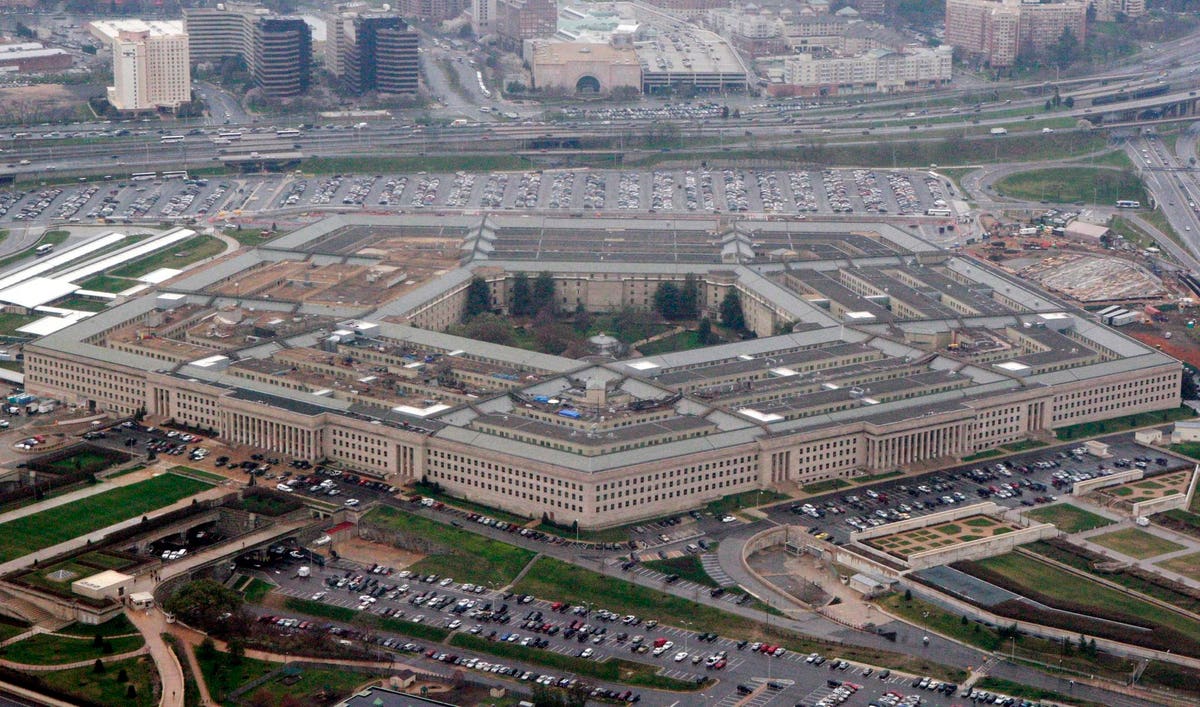On the surface, the $886 billion national defense funding act that passed the U.S. House of Representatives at the end of last week reflects a big divide between Democrats and Republicans – it was approved by a vote of 219 to 210, largely on party lines. But there may be more unity than apparent between the country’s two main political parties when it comes to an often-overlooked area of arms purchases – imports, especially components from China.
Amid U.S.-China tension on a swath of geopolitical issues, a Democratic Party progressive on the House Armed Services Committee and Republican Party conservative frequently critical of China have recently raised questions about the ability of the U.S. to make its own weapons.
In his new book “No Trade Is Free,” Robert Lighthizer – the former U.S. Trade Representative under then President Donald Trump — warns “the United States must have the ability to manufacture its own military equipment. This includes high-tech military equipment. Any country that cannot manufacture its own equipment its own such equipment is vulnerable to interruptions of equipment supply during times of conflict.”
The U.S. challenge was laid bare in an interview last month by the Financial Times with Greg Hayes, chief executive of Raytheon, one of the nation’s largest defense contractors. He said the Massachusetts-based company had “several thousand suppliers in China and decoupling… is impossible.”
“We can de-risk but not decouple,” Hayes was reported to have said. “If we had to pull out of China, it would take us many years to re-establish that capability either domestically or in other friendly countries.”
In a telephone interview last week, progressive House member Ro Khanna criticized the Pentagon for a lack of data about American purchases of imported parts for U.S. weapons.
“We don’t know what percent of component parts are made in America,” Khanna said. “It also is a massive expenditure without any oversight. And that’s what needs to be addressed.”
“We’re moving to almost a $1 trillion dollar defense budget and we can’t produce enough artillery in America? I thought the first thing you produce enough in the military is artillery,” Khanna said. “How is it that we have a trillion-dollar budget and can’t produce that?”
A Khanna amendment to last week’s National Defense Authorization Act would require the Pentagon to provide details on items and components purchased that would show “the vulnerability of where we’re getting our defense materials. We’ve got to at least measure it, at least track it.”
The Pentagon, for its part, said by email it “does not provide comments or statements on draft legislative actions.”
U.S.-China trade – and America’s trade deficit – has ballooned since the Middle Kingdom’s entrance into the World Trade Organization in 2001. China has since become one of the largest U.S. suppliers of renewable energy equipment such solar panels; it has at the same time become a large market for American companies with operations there such as Starbucks.
Khanna, a former visiting economics lecturer at Stanford, says attention on U.S. supply chains for arms has risen as a result of overall supply chain disruptions during the pandemic. “I think that there was not the recognition of the vulnerability of global supply chains. The pandemic woke a lot of people.”
It also flows from disappointment about U.S.-China ties over the years, he said. “There was the sense of the end of history with Francis Fukuyama and the sense that China was going be democratize,” Khanna said. “There was a little bit of naivety about how challenging the world may be,” and a lack of urgency in tracking U.S. dependence on imports from China related to its own national defense, he said.
Khanna has gained attention this year in China circles following his appointment to the high-profile House Select Committee on Strategic Competition Between the United States and the Chinese Communist Party. The author of “Progressive Capitalism: Making Tech Work for All of Us” and “Entrepreneurial Nation: Why Manufacturing Is Still Key To America’s Future,” Khanna was a deputy assistant secretary of commerce under President Obama
Ironically, Khanna didn’t vote for the funding package which included his own amendment last week. “I voted against it in committee and I voted against it on the floor” due to restrictions on abortion rights and other amendments to the measure, he said.
The act now goes to the Senate for more discussion. Khanna expects a new version with fewer social measures attached will emerge “in the next month.”
See related posts:
Most Asian Americans View Their Ancestral Homelands Favorably, Except Chinese Americans — Pew Research
Record Heat, U.S.-China Meetings Highlight Investment Case For Renewable Energy — Ampax CIO
BYD’s Wang Chuanfu Repeats Atop Forbes China’s Best CEOs List
China’s Days As A Sole Overseas Source For U.S. Companies “Are Over” — Stephen Roach
China’s “Fits And Starts” Economy Needs Private Sector Boost — Matthews Asia’s Andy Rothman
@rflannerychina
Read the full article here





